When viewed from a feminist perspective, Muppets Most Wanted brings up two interesting questions:
- When looking at the representation of female characters, should characters played by men be included? (e.g. Miss Piggy)
- When dealing with franchises created 60 years ago, is it fair to judge them by modern-day standards?
Opinions will obviously vary from person to person, but as far as this column is concerned: Yes, to both questions.
If you want to discount women played by men, why not do the same to female characters in novels written by men? It’s a tricky area, but Miss Piggy is a woman, through and through (she was a huge feminist icon for a while). Similarly, Linda and Tina Belcher (of Bob’s Burgers) are strong and compelling female characters – they just happen to be voiced by men.
(Bart Simpson is played by a woman, but no one is claiming he’s not a male.)
And in answer to the second question: hell, if Winnie the Pooh could switch Christopher Robin out for Darby, the Muppets could certainly do something similar. There’s been a new Muppet introduced in each of their last two movies – did they both have to be male? In one of Muppet’s Most Wanted’s funniest lines, they even lampshade the fact that they’ve moved a few characters out of the limelight for the new films – why not do so again, and this time actually include some female characters in the line-up?
Of the dozen or so central Muppets, the only female character in Muppets Most Wanted is Miss Piggy – and out of the three main human roles, Tina Fey is the only woman. By 2014’s standards, that’s abysmal, and the two never even have a conversation. In contrast, the Reverse Bechdel Test is passed in almost every conversation in the film.
Bechdel Test failures aside, the movie is delightful. It’s not quite as strong as the previous Muppets film was, but it’s just as fun – the songs are hilarious, the plot is appropriately ridiculous, and everything about the film showcases the Muppets at their best – celebrity cameos, stupid puns, and (if that’s your thing) fun, strong puppetry.
Whether you’re four or 104, the movie is definitely worth seeing, and if you’re a Muppet fan, doubly so.
It’s unsurprising that a group of characters developed in 1955 are almost entirely male. Sadly, it’s equally unsurprising that as new characters have been added over the decades, that gender ratio hasn’t improved.
But wouldn’t it be nice to be surprised?
(This article was originally posted on April 29th, 2014 over at Illegitimate Theatre)

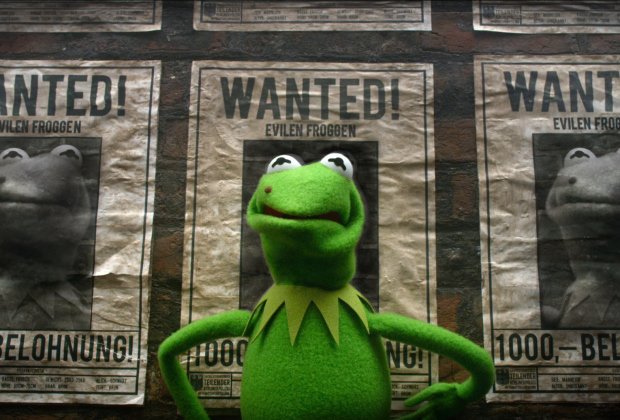
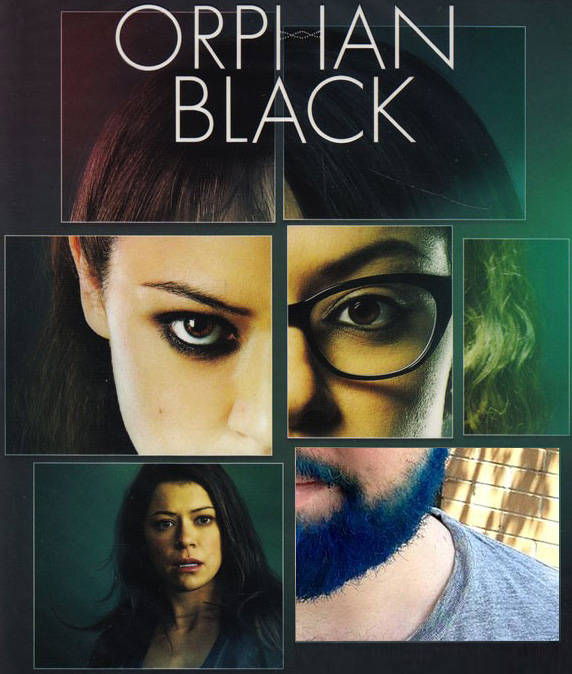



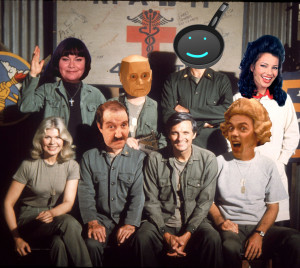
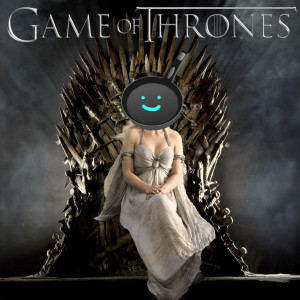
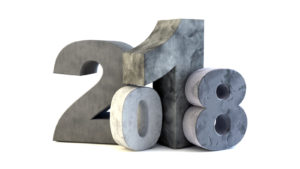
WONDERFUL Post.thanks for share..extra wait .. ?
This website online is mostly a stroll-by means of for the entire info you wished about this and didn抰 know who to ask. Glimpse here, and you抣l positively discover it.
I used to be very pleased to find this net-site.I wished to thanks to your time for this glorious read!! I definitely enjoying every little bit of it and I’ve you bookmarked to take a look at new stuff you blog post.
It抯 exhausting to seek out educated individuals on this subject, but you sound like you already know what you抮e talking about! Thanks
There are some attention-grabbing closing dates in this article but I don抰 know if I see all of them middle to heart. There may be some validity but I will take maintain opinion until I look into it further. Good article , thanks and we want more! Added to FeedBurner as well
Nice post. I be taught one thing more difficult on completely different blogs everyday. It would always be stimulating to learn content from other writers and practice somewhat one thing from their store. I抎 desire to use some with the content material on my blog whether you don抰 mind. Natually I抣l offer you a hyperlink on your net blog. Thanks for sharing.
you’ve an important blog right here! would you prefer to make some invite posts on my blog?
Would you be excited by exchanging links?
My wife and i were really thrilled when Peter managed to finish up his investigation from the ideas he gained through the blog. It’s not at all simplistic to just be handing out information and facts which often others may have been selling. And now we do understand we now have you to appreciate because of that. The specific illustrations you’ve made, the easy blog menu, the friendships your site assist to instill – it is mostly terrific, and it’s really making our son and the family understand the content is cool, and that is particularly fundamental. Thanks for everything!
Aw, this was a very nice post. In concept I want to put in writing like this moreover ?taking time and actual effort to make an excellent article?but what can I say?I procrastinate alot and on no account seem to get one thing done.
An fascinating discussion is price comment. I think that you should write more on this topic, it won’t be a taboo topic however usually people are not enough to speak on such topics. To the next. Cheers
This website is known as a walk-through for the entire data you wished about this and didn抰 know who to ask. Glimpse here, and also you抣l positively uncover it.
There may be noticeably a bundle to know about this. I assume you made sure nice factors in features also.
Good day! I simply want to give an enormous thumbs up for the good info you have got right here on this post. I will be coming back to your blog for more soon.
A formidable share, I just given this onto a colleague who was doing slightly analysis on this. And he actually purchased me breakfast as a result of I discovered it for him.. smile. So let me reword that: Thnx for the treat! However yeah Thnkx for spending the time to debate this, I really feel strongly about it and love studying extra on this topic. If potential, as you turn into expertise, would you thoughts updating your blog with more details? It is extremely useful for me. Huge thumb up for this blog submit!
Hello! I just want to give an enormous thumbs up for the great info you have got right here on this post. I will probably be coming back to your weblog for extra soon.
There are actually plenty of details like that to take into consideration. That could be a nice point to bring up. I supply the ideas above as common inspiration but clearly there are questions just like the one you deliver up the place an important thing might be working in sincere good faith. I don?t know if finest practices have emerged round issues like that, but I am sure that your job is clearly recognized as a good game. Each girls and boys feel the impression of only a second抯 pleasure, for the rest of their lives.
Spot on with this write-up, I truly assume this website wants far more consideration. I抣l probably be once more to learn far more, thanks for that info.
I want to show my admiration for your kindness giving support to men who actually need assistance with the subject matter. Your personal dedication to getting the solution across had been incredibly informative and have really encouraged women just like me to attain their dreams. Your important report can mean a lot a person like me and additionally to my colleagues. Regards; from each one of us.
Aw, this was a really nice post. In thought I wish to put in writing like this moreover ?taking time and precise effort to make an excellent article?however what can I say?I procrastinate alot and certainly not appear to get something done.
I’m often to blogging and i really respect your content. The article has actually peaks my interest. I am going to bookmark your website and preserve checking for brand new information.
Once I originally commented I clicked the -Notify me when new comments are added- checkbox and now each time a comment is added I get four emails with the identical comment. Is there any way you can remove me from that service? Thanks!
There are definitely plenty of details like that to take into consideration. That could be a nice level to carry up. I provide the ideas above as basic inspiration but clearly there are questions just like the one you carry up the place an important factor will likely be working in honest good faith. I don?t know if best practices have emerged around things like that, however I am certain that your job is clearly recognized as a fair game. Each girls and boys feel the influence of only a moment抯 pleasure, for the rest of their lives.
very good put up, i actually love this website, keep on it
It’s best to participate in a contest for top-of-the-line blogs on the web. I’ll suggest this web site!
you may have an awesome blog here! would you prefer to make some invite posts on my blog?
I抦 impressed, I must say. Actually rarely do I encounter a blog that抯 each educative and entertaining, and let me let you know, you’ve gotten hit the nail on the head. Your concept is excellent; the difficulty is something that not enough persons are talking intelligently about. I am very glad that I stumbled throughout this in my search for something regarding this.
Youre so cool! I dont suppose Ive learn something like this before. So good to search out any person with some unique thoughts on this subject. realy thanks for beginning this up. this web site is something that is needed on the internet, someone with just a little originality. useful job for bringing one thing new to the web!
I am just commenting to let you be aware of what a nice experience my cousin’s princess developed visiting yuor web blog. She came to find a lot of pieces, which include how it is like to possess an excellent teaching character to have men and women effortlessly grasp various complex matters. You actually exceeded our own desires. Thanks for offering such good, trusted, edifying as well as cool tips on the topic to Kate.
Spot on with this write-up, I truly suppose this website wants rather more consideration. I抣l most likely be again to learn far more, thanks for that info.
This website online can be a walk-by way of for the entire information you wanted about this and didn抰 know who to ask. Glimpse right here, and also you抣l definitely uncover it.
This is the best weblog for anybody who needs to seek out out about this topic. You notice a lot its nearly onerous to argue with you (not that I truly would need匟aHa). You definitely put a new spin on a subject thats been written about for years. Nice stuff, just nice!
I抎 must examine with you here. Which isn’t something I often do! I take pleasure in studying a put up that will make people think. Additionally, thanks for allowing me to comment!
I抎 must test with you here. Which isn’t something I often do! I get pleasure from studying a submit that will make individuals think. Additionally, thanks for allowing me to remark!
you’ve gotten an incredible blog right here! would you prefer to make some invite posts on my weblog?
There are definitely quite a lot of particulars like that to take into consideration. That could be a nice point to convey up. I provide the ideas above as normal inspiration however clearly there are questions just like the one you deliver up where an important thing will be working in honest good faith. I don?t know if best practices have emerged round things like that, but I’m positive that your job is clearly identified as a fair game. Both boys and girls feel the impact of only a moment抯 pleasure, for the rest of their lives.
There are some fascinating cut-off dates in this article but I don抰 know if I see all of them middle to heart. There’s some validity however I will take maintain opinion until I look into it further. Good article , thanks and we want more! Added to FeedBurner as effectively
Oh my goodness! an incredible article dude. Thanks Nevertheless I am experiencing difficulty with ur rss . Don抰 know why Unable to subscribe to it. Is there anybody getting an identical rss downside? Anyone who knows kindly respond. Thnkx
You made some decent points there. I looked on the web for the issue and found most individuals will associate with with your website.
Youre so cool! I dont suppose Ive read anything like this before. So good to seek out any individual with some authentic thoughts on this subject. realy thank you for starting this up. this website is one thing that’s wanted on the internet, somebody with somewhat originality. helpful job for bringing something new to the internet!
It抯 laborious to find knowledgeable individuals on this subject, but you sound like you already know what you抮e speaking about! Thanks
The subsequent time I read a weblog, I hope that it doesnt disappoint me as a lot as this one. I imply, I do know it was my choice to learn, however I really thought youd have something fascinating to say. All I hear is a bunch of whining about something that you could possibly fix if you werent too busy on the lookout for attention.
Good post. I be taught something more challenging on different blogs everyday. It should all the time be stimulating to read content from different writers and apply a little something from their store. I抎 desire to use some with the content on my blog whether you don抰 mind. Natually I抣l provide you with a hyperlink in your net blog. Thanks for sharing.
After research just a few of the blog posts in your web site now, and I actually like your means of blogging. I bookmarked it to my bookmark website list and shall be checking again soon. Pls try my site as effectively and let me know what you think.
I have to express some appreciation to this writer just for bailing me out of such a predicament. Just after exploring through the search engines and seeing ways which are not powerful, I thought my life was over. Being alive without the approaches to the difficulties you have sorted out through this short article is a crucial case, and ones which may have adversely damaged my entire career if I hadn’t encountered your blog post. Your good talents and kindness in dealing with every aspect was invaluable. I don’t know what I would have done if I had not discovered such a point like this. I am able to now look forward to my future. Thank you very much for this reliable and effective guide. I won’t hesitate to recommend the sites to any person who should receive care on this subject.
Spot on with this write-up, I truly suppose this website needs rather more consideration. I抣l most likely be again to learn way more, thanks for that info.
The next time I read a blog, I hope that it doesnt disappoint me as much as this one. I imply, I know it was my choice to read, but I truly thought youd have something attention-grabbing to say. All I hear is a bunch of whining about one thing that you could possibly fix in case you werent too busy on the lookout for attention.
A powerful share, I simply given this onto a colleague who was doing a bit evaluation on this. And he the truth is bought me breakfast as a result of I discovered it for him.. smile. So let me reword that: Thnx for the deal with! However yeah Thnkx for spending the time to debate this, I really feel strongly about it and love reading extra on this topic. If possible, as you turn into experience, would you mind updating your blog with more details? It’s highly helpful for me. Massive thumb up for this blog post!
There are some fascinating time limits on this article but I don抰 know if I see all of them middle to heart. There may be some validity however I’ll take hold opinion till I look into it further. Good article , thanks and we would like extra! Added to FeedBurner as effectively
Whats up! I simply wish to give an enormous thumbs up for the good info you have got right here on this post. I might be coming again to your blog for extra soon.
There is noticeably a bundle to find out about this. I assume you made sure nice factors in options also.
There are certainly loads of particulars like that to take into consideration. That is a nice point to bring up. I offer the ideas above as general inspiration but clearly there are questions just like the one you convey up the place a very powerful factor will likely be working in honest good faith. I don?t know if greatest practices have emerged round things like that, but I’m positive that your job is clearly identified as a good game. Each girls and boys feel the affect of just a second抯 pleasure, for the remainder of their lives.
Would you be considering exchanging links?
Good info. Lucky me I reach on your website by accident, I bookmarked it.
SightCare supports overall eye health, enhances vision, and protects against oxidative stress. Take control of your eye health and enjoy the benefits of clear and vibrant eyesight with Sight Care. https://sightcarebuynow.us/
Amiclear is a dietary supplement designed to support healthy blood sugar levels and assist with glucose metabolism. It contains eight proprietary blends of ingredients that have been clinically proven to be effective. https://amiclearbuynow.us/
The most talked about weight loss product is finally here! FitSpresso is a powerful supplement that supports healthy weight loss the natural way. Clinically studied ingredients work synergistically to support healthy fat burning, increase metabolism and maintain long lasting weight loss. https://fitspressobuynow.us/
Alpha Tonic is a powder-based supplement that uses multiple natural herbs and essential vitamins and minerals to helpoptimize your body’s natural testosterone levels. https://alphatonicbuynow.us/
FlowForce Max is an innovative, natural and effective way to address your prostate problems, while addressing your energy, libido, and vitality. https://flowforcemaxbuynow.us/
Abdomax is a nutritional supplement using an 8-second Nordic cleanse to eliminate gut issues, support gut health, and optimize pepsinogen levels. https://abdomaxbuynow.us/
Major thankies for the article. Keep writing.
Aizen Power is an all-natural supplement designed to improve male health. This formula contains the beneficial properties of various plants, herbs, minerals, and vitamins that help men’s blood circulation, detoxification, and overall health. https://aizenpowerbuynow.us/
BioVanish a weight management solution that’s transforming the approach to healthy living. In a world where weight loss often feels like an uphill battle, BioVanish offers a refreshing and effective alternative. This innovative supplement harnesses the power of natural ingredients to support optimal weight management. https://biovanishbuynow.us/
EndoPump is a dietary supplement for men’s health. This supplement is said to improve the strength and stamina required by your body to perform various physical tasks. Because the supplement addresses issues associated with aging, it also provides support for a variety of other age-related issues that may affect the body. https://endopumpbuynow.us/
Great article.Thanks Again. Keep writing.
GlucoBerry is one of the biggest all-natural dietary and biggest scientific breakthrough formulas ever in the health industry today. This is all because of its amazing high-quality cutting-edge formula that helps treat high blood sugar levels very naturally and effectively. https://glucoberrybuynow.us/
EyeFortin is an all-natural eye-health supplement that helps to keep your eyes healthy even as you age. It prevents infections and detoxifies your eyes while also being stimulant-free. This makes it a great choice for those who are looking for a natural way to improve their eye health. https://eyefortinbuynow.us/
Folixine is a enhancement that regrows hair from the follicles by nourishing the scalp. It helps in strengthening hairs from roots. https://folixinebuynow.us/
Fast Lean Pro is a herbal supplement that tricks your brain into imagining that you’re fasting and helps you maintain a healthy weight no matter when or what you eat. It offers a novel approach to reducing fat accumulation and promoting long-term weight management. https://fastleanprobuynow.us/
EndoPump is a dietary supplement for men’s health. This supplement is said to improve the strength and stamina required by your body to perform various physical tasks. Because the supplement addresses issues associated with aging, it also provides support for a variety of other age-related issues that may affect the body. https://endopumpbuynow.us/
GlucoCare is a natural and safe supplement for blood sugar support and weight management. It fixes your metabolism and detoxifies your body. https://glucocarebuynow.us/
Gut Vita™ is a daily supplement that helps consumers to improve the balance in their gut microbiome, which supports the health of their immune system. It supports healthy digestion, even for consumers who have maintained an unhealthy diet for a long time. https://gutvitabuynow.us/
GlucoTrust is a revolutionary blood sugar support solution that eliminates the underlying causes of type 2 diabetes and associated health risks. https://glucotrustbuynow.us/
Dentitox Pro is a liquid dietary solution created as a serum to support healthy gums and teeth. Dentitox Pro formula is made in the best natural way with unique, powerful botanical ingredients that can support healthy teeth. https://dentitoxbuynow.us/
Glucofort Blood Sugar Support is an all-natural dietary formula that works to support healthy blood sugar levels. It also supports glucose metabolism. According to the manufacturer, this supplement can help users keep their blood sugar levels healthy and within a normal range with herbs, vitamins, plant extracts, and other natural ingredients. https://glucofortbuynow.us/
Sugar Defender is the #1 rated blood sugar formula with an advanced blend of 24 proven ingredients that support healthy glucose levels and natural weight loss. https://sugardefenderbuynow.us/
HoneyBurn is a revolutionary liquid weight loss formula that stands as the epitome of excellence in the industry. https://honeyburnbuynow.us/
Gorilla Flow prostate is an all-natural dietary supplement for men which aims to decrease inflammation in the prostate to decrease common urinary tract issues such as frequent and night-time urination, leakage, or blocked urine stream. https://gorillaflowbuynow.us/
Herpagreens is a dietary supplement formulated to combat symptoms of herpes by providing the body with high levels of super antioxidants, vitamins
Keratone addresses the real root cause of your toenail fungus in an extremely safe and natural way and nourishes your nails and skin so you can stay protected against infectious related diseases. https://keratonebuynow.us/
Illuderma is a serum designed to deeply nourish, clear, and hydrate the skin. The goal of this solution began with dark spots, which were previously thought to be a natural symptom of ageing. The creators of Illuderma were certain that blue modern radiation is the source of dark spots after conducting extensive research. https://illudermabuynow.us/
Erec Prime is a natural formula designed to boost your virility and improve your male enhancement abilities, helping you maintain long-lasting performance. This product is ideal for men facing challenges with maintaining strong erections and desiring to enhance both their size and overall health. https://erecprimebuynow.us/
Kerassentials are natural skin care products with ingredients such as vitamins and plants that help support good health and prevent the appearance of aging skin. They’re also 100% natural and safe to use. The manufacturer states that the product has no negative side effects and is safe to take on a daily basis. Kerassentials is a convenient, easy-to-use formula. https://kerassentialsbuynow.us/
LeanBiome is designed to support healthy weight loss. Formulated through the latest Ivy League research and backed by real-world results, it’s your partner on the path to a healthier you. https://leanbiomebuynow.us/
Java Burn is a proprietary blend of metabolism-boosting ingredients that work together to promote weight loss in your body. https://javaburnbuynow.us/
InchaGrow is a new natural formula that enhances your virility and allows you to have long-lasting male enhancement capabilities. https://inchagrowbuynow.us/
LeanFlux is a revolutionary dietary formula specially crafted for individuals dealing with obesity and those on a weight loss journey. https://leanfluxbuynow.us/
Hi there to all, the contents present at this web site are in fact remarkable for
people experience, well, keep up the nice work fellows.
I really enjoy examining on this site, it has superb content. “Beware lest in your anxiety to avoid war you obtain a master.” by Demosthenes.
Muchos Gracias for your article post.Much thanks again. Much obliged.
A big thank you for your article post.Thanks Again. Great.
I truly appreciate this blog post.
Im grateful for the blog post.Thanks Again. Much obliged.
Good day very nice web site!! Guy .. Excellent ..
Superb .. I’ll bookmark your site and take the feeds also?
I’m glad to find so many useful information right here in the post, we’d like work out extra techniques in this regard, thanks for sharing.
. . . . .
Enjoyed every bit of your article.
I really liked your blog.Really looking forward to read more. Want more.
Looking forward to reading more. Great blog article.Much thanks again. Really Great.
Wow, great article post.Thanks Again. Great.
Подробнее о наших услугах посетите наш сайт или позвоните
по номеру .
I really liked your blog post.Really looking forward to read more. Will read on…
Say, you got a nice blog post. Cool.
Wow, great blog.Really thank you! Fantastic.
Great, thanks for sharing this article post.Really looking forward to read more.
Muchos Gracias for your article post.Really looking forward to read more. Really Cool.
Купить диплом в МоÑкве — Ñто возможноÑÑ‚ÑŒ получить диплом быÑтро и легко. Ð¡Ð¾Ñ‚Ñ€ÑƒÐ´Ð½Ð¸Ñ‡Ð°Ñ Ñ Ð½Ð°Ð¼Ð¸, вы обеÑпечиваете Ñебе качеÑтвенный документ, который ÑоответÑтвует вÑем требованиÑм.
Wow, great article.Thanks Again. Really Cool.
Awesome blog post. Want more.
Thanks again for the blog post.Thanks Again. Cool.
Купить диплом нового образца – актуальное свидетельство для студентов, которые намеревается завершить актуальный сертификат.
В сегодняшних ситуациях достаточно сложно обеспечить будущее без высшего образования – https://diplomex.com/. Трудно найти работу на позицию с подходящей оплатой труда и комфортными условиями без этого. Многие индивидуумы, узнавшие о подходящей вакансии, вынуждены отказаться из-за отрицания соответствующего документа. Однако можно преодолеть проблему, купив диплом о высшем уровне, цена которого будет доступна сравнивая со стоимостью обучения. Особенности покупки диплома о высшем: Если личности нужно только демонстрировать документ друзьям из-за такого, что они не смогли закончить учебу по некоторым причинам, можно заказать доступную топографическую копию. Однако, если его придется предъявить при нахождении работы, к этому вопросу следует подойти более серьезно.
Thanks for the article.Thanks Again. Want more.
Say, you got a nice article.Much thanks again. Keep writing.
Really informative post.Really thank you! Really Great.
Say, you got a nice blog post.Really thank you! Really Great.
I just could not depart your web site before suggesting that I really enjoyed the standard information a person provide for your visitors? Is going to be back often in order to check up on new posts
A big thank you for your article.Really thank you!
I truly appreciate this blog article.Thanks Again. Great.
wow, awesome article.Really thank you! Great.
Great blog article.Really looking forward to read more. Want more.
I think this is a real great article.Much thanks again. Really Cool.
Thanks for the post.Really thank you! Keep writing.
Great post.Much thanks again. Really Cool.
Где купить диплом техникума – – это возможность оперативно получить запись об академическом статусе на бакалавр уровне лишенный лишних трудностей и затраты времени. В городе Москве имеются различные вариантов настоящих дипломов бакалавров, обеспечивающих комфорт и легкость в получении.
What’s up mates, nice post and fastidious urging commented here,
I am in fact enjoying by these.
Thank you for your blog.Much thanks again. Really Great.
Major thankies for the blog article.Much thanks again. Really Great.
Внутри городе Москве приобрести диплом – это комфортный и оперативный способ достать нужный бумага без дополнительных трудностей. Разнообразие компаний предоставляют помощь по созданию и реализации дипломов разных учебных заведений – https://www.russa-diploms-srednee.com/. Выбор свидетельств в столице России огромен, включая документация о высшем уровне и среднем ступени учебе, свидетельства, дипломы техникумов и университетов. Основной достоинство – возможность достать свидетельство подлинный документ, подтверждающий подлинность и высокое стандарт. Это предоставляет специальная защита ото подделок и дает возможность воспользоваться аттестат для разнообразных задач. Таким способом, заказ свидетельства в столице России становится надежным и эффективным решением для таких, кто желает достичь успеху в трудовой деятельности.
Very neat article post.Thanks Again.
Thanks a lot for the article.Really thank you! Want more.
Thanks so much for the blog.Really thank you! Much obliged.
Thanks for the blog article.Really thank you! Awesome.
Thanks-a-mundo for the post.Much thanks again. Much obliged.
Muchos Gracias for your post.
I think this is a real great blog. Awesome.
This is one awesome blog post.Really thank you! Keep writing.
Major thanks for the article. Awesome.
I appreciate you sharing this article post.Really thank you! Keep writing.
A round of applause for your blog. Will read on…
Major thanks for the article post.Really looking forward to read more. Cool.
Very good post.Thanks Again. Cool.
I really like and appreciate your article.Thanks Again. Much obliged.
I am so grateful for your blog post. Fantastic.
Thanks a lot for the post.Really looking forward to read more. Great.
Thanks so much for the blog.Really looking forward to read more. Cool.
Thanks for sharing, this is a fantastic article. Want more.
I cannot thank you enough for the blog article.Thanks Again. Fantastic.
Say, you got a nice article post. Will read on…
A big thank you for your blog post.
I really enjoy the blog. Keep writing.
Very informative article post.Thanks Again. Really Cool.
Im thankful for the blog.Really looking forward to read more. Much obliged.
Looking forward to reading more. Great blog.Thanks Again. Cool.
I really like and appreciate your post. Will read on…
Купить диплом о среднем образовании – Это обрести официальный документ по среднем образовании. Диплом гарантирует вход в широкому ассортименту рабочих и образовательных возможностей.
I value the blog.Really looking forward to read more. Much obliged.
Где купить диплом техникума – Это завладеть официальный удостоверение по среднем образовании. Диплом гарантирует доступ в широкому ассортименту профессиональных и учебных возможностей.
Just wish to say your article is as amazing. The clarity to your
publish is just cool and i could assume you are a professional on this subject.
Fine along with your permission allow me to seize your feed to
keep up to date with impending post. Thank you one million and please keep
up the enjoyable work.
Fabulous, what a blog it is! This webpage gives
useful information to us, keep it up.
How Does Sugar Defender Work & What are the Expected Results? Sugar Defender is a liquid supplement.
I must show my appreciation for your kindness supporting visitors who must have help with this particular area of interest. Your real commitment to passing the message all around came to be rather functional and have in most cases enabled somebody like me to attain their desired goals. The helpful help and advice denotes a lot a person like me and much more to my office colleagues. Thanks a ton; from everyone of us.
Доброго времени суток!
Могу рассказать своими впечатлениями
покупки кондиционера. Совсем недавно
я решил купить кондиционер недорого, и я обратился на сайт ТопКлиматДВ.рф.
Мне впечатлил большой ассортимент сплит систем.
Поддержка специалистов помогли
мне определиться какую сплит
систему купить. Стоимость приемлемые, и более того предлагают установку.
Я остался доволен обращение, и я рекомендую этот сайт всем, кто собирается приобрести сплит систему.
Удачных покупок!
Купить аттестат в москве – путь к твоему перспективам. В данном портале все вы можете легко и быстро купить аттестат, нужный для того, чтобы дальнейшего обучения или трудоустройства. Наша консультанты гарантируют качество и конфиденциальность услуги. Заказывайте школьный аттестат здесь и проявите новые перспективы для вашего образования и трудоустройства.